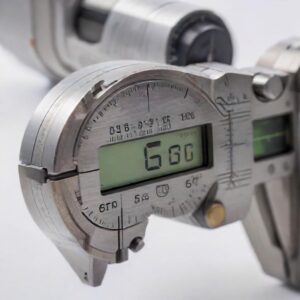Millimeters to Inches Converter
Understanding 69.5 mm to Inches
When you’re working with measurements, converting between different units can sometimes be tricky. In this article, we will focus on converting 69.5 mm to inches, a common conversion needed in various fields such as engineering, woodworking, and DIY projects.
How to Convert 69.5 mm to Inches
The conversion process from millimeters to inches involves a straightforward mathematical formula. The relationship is defined as:
1 inch = 25.4 mmTo convert 69.5 mm to inches, you can use the formula:
inches = millimeters ÷ 25.4Thus, the calculation is:
69.5 mm ÷ 25.4 = 2.74015748 inchesSo, 69.5 mm is approximately 2.74 inches.
Helpful Tips for Converting Measurements
- Use a Calculator: For quick conversions like 69.5 mm to inches, using a conversion calculator can save time.
- Rounding: If you don’t need extreme precision, rounding to two decimal places (2.74 in this case) is usually sufficient.
- Understanding the Context: Ensure you know why you are converting measurements, as accuracy may vary in different fields.
Common Mistakes When Converting
One common mistake is forgetting to use the correct conversion factor. Always remember that 1 inch equals 25.4 mm when you want to convert 69.5 mm to inches accurately. Misplacing the decimal is another frequent error.
Top 10 Questions About 69.5 mm to inches
- How does 69.5 mm to inches work? It works by using the formula where inches equal millimeters divided by 25.4.
- Can you easily convert 69.5 mm to inches? Yes, especially if you follow the conversion formula carefully.
- What is 69.5 mm in decimal form? 69.5 mm translates to about 2.74 inches when converted.
- What tools can help with conversions? Online calculators and mobile apps can efficiently convert units.
- Is it important to measure accurately? Yes, especially in fields where precision is crucial, such as machining.
- Are there any approximate rules for easy conversion? For rough estimates, you can remember that 25 mm is about 1 inch.
- Does the conversion differ for other measurement units? Yes, conversions from mm to centimeters or meters follow different factors.
- Do I need to convert in everyday situations? You may not need to convert in daily life but it’s helpful in DIY projects.
- How can I verify my conversion? Cross-check using multiple sources or conversion tools.
- What are the implications of wrong conversions? Incorrect conversions may lead to errors in product sizing and design.
Wow, didn’t realize 69.5 mm is actually like 2.74 inches! 🤯 I always get confused with these conversions. Thanks for making it simple!
Just measured something that was 69.5 mm, and now I feel like I’ve got mad conversion skills! What’s the next challenge? Metric cooking maybe?
Good post! I usually just Google these conversions, but this is way easier. Do you have a chart or something for other sizes?
Good post! I usually just Google these conversions, but this is way easier. Do you have a chart or something for other sizes?